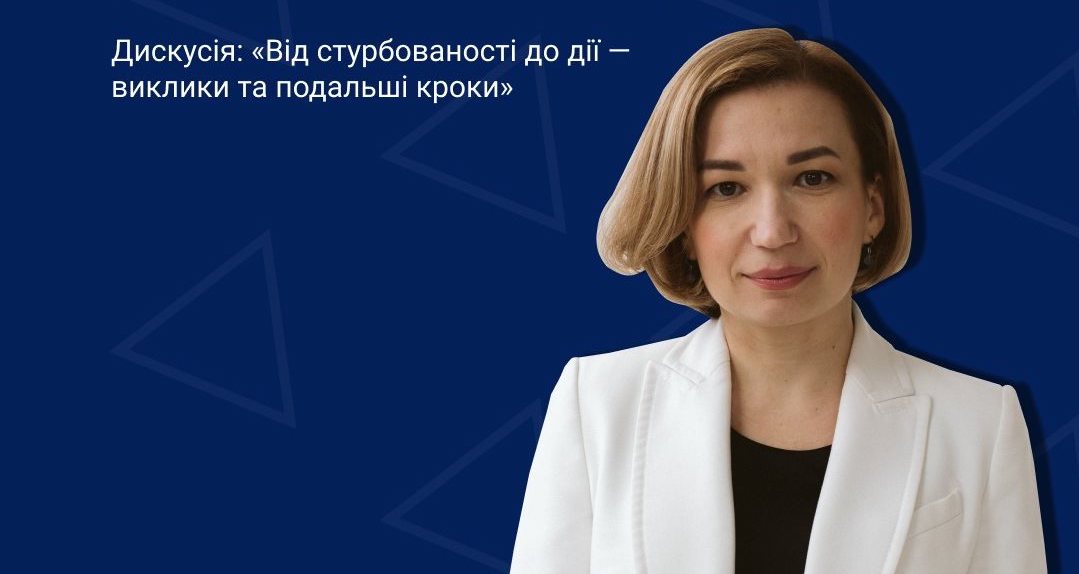Human rights lawyers, public and cultural activists discussed human rights during the war, their cooperation over the year of joint effort, achievement and accomplishments during the All-Ukrainian Human Rights Forum “Legion of Law.” The event was organized by the Ukrainian Parliament Commissioner for Human Rights, Dmytro Lubinets.
The event was opened by a UNDP Resident Representative Jaco Cilliers, Ambassador of Japan to Ukraine Matsuda Kuninori, and Ambassador of Denmark Ole Egberg Mikkelsen. Olha Aivazovska, Chair of the Board at the Civil Network OPORA, also joined the discussion on “From Concern to Action: Challenges and Next Steps.”
In her input, Olha Aivazovska focused on people who lost their homes and had to leave Ukraine’s territory. “As of today, 20% of our citizens are staying out of country. Unfortunately, the outflow of human capital continues. It is mostly related to security aspects. A huge share of those citizens left from the territories located near the contact line or under the occupation. We understand that these people are the valuable capital, resource, and the target audience to testify about war crimes and crimes against humanity they eye-witnessed,” said Aivazovska. “The war may last for a long time to come but the outflow of human capital will disable Ukraine from the full-scale renewal. At the same time, OPORA’s survey findings show that 55% of our war refugees used to have better living conditions in Ukraine than now abroad. 22% used to live in the same conditions, and as few as 17% have improved their financial status. 17% of respondents said they would not return, while others are willing to return. One of their key requests is to demand justice. Therefore, Civil Network OPORA and the partners are now working on several tracks. The first track is to advocate for the establishment of the Special Tribunal on the Crime of Aggression and for verdicts of the International Criminal Court. The ICC investigators say that the analytical data on migration would be helpful to prove the crime. A typical Ukrainian refugee, or rather a temporary asylum seeker, lives within a Ukrainian information space. Therefore, Ukrainian media space is prevalent for information provision and for awareness raising.”
According to OPORA chair of the board, no victim and no witness can be left beyond the focus of Ukrainian state and partners hosting our citizens: “Civil society, NGOs have been doing the utmost after February, 24, 2022, to document war crimes. In particular, OPORA is now actively involved in that process. We conduct preliminary interviews and transfer them to the law-enforcement of the countries participating in the combined team of investigators, or to the International Criminal Court.”
In addition, Olha Aivazovska shared about an initiative of Ukraine’s civil society, human rights lawyers, analysts, and historians. I tis a visionary document of the “Sustainable Peace Manifesto”: “With no justice, with no punishment for perpetrators, the war, unfortunately, will be coming back to Ukraine and spread to other territories. If this regime is not punished then even if the conflict is frozen, or even when Ukraine reaches the boundaries it accepts, Russia will recover their capacity for aggression against the neighbours, and the next nearest war will simply be postponed several years further.”
“My message is that the huma rights protection is the duty of all organizations that have the appropriate competences, and that can, within a short time, become partners to those who is ready to offer ongoing support aiming at the final outcome. Because justice shall be not only visible but also effective. At the same time, we should not build in the society any excessive expectations for justice. We need to be honest to them and to ourselves, also about the efficiency of the system that must bring each case from the moment of preliminary testimonial interview to the court hearing. That is why I am deeply convinced that we can search for efficient means to help victims and, certainly, the law-enforcement and judicial systems in different jurisdictions, also in the International Criminal Court. But it is also critical to aim for the results rather than for statistics.”
Watch the conference video:
